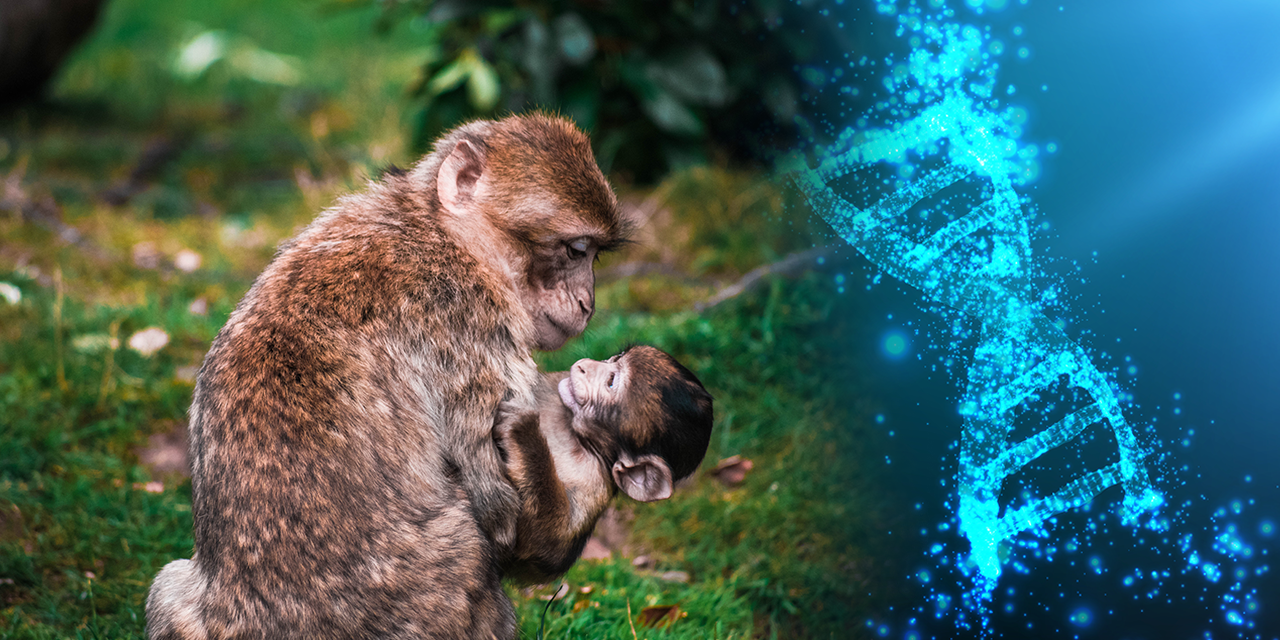Epigenetic changes: Can childhood traumas affect your genes?

Since our first moments in the womb to the time of birth including all the stresses that our mothers have experienced can affect our genes through epigenetic ways.
The word epigenetic above genetics; like a hat on a head or a roof over a house. As you know, we all have genes that get passed down to us through our parents and consist of DNA. These genes control the synthesis of all the proteins in the body, making us who we are. In the past years, it was assumed that a person who was born with a genetic structure would live with these genes until the end of his life.
However, studies have shown that changes in the expression of genes can occur with environmental factors and that people are not stuck with their genes they inherit. The epigenetic concept explains this: Changes in genetic expressions through the synthesized proteins occurring without altering the structure of the genes. If you think of genes as computers or smartphones, epigenetic changes can also be thought of as installing/deleting software and applications on these computers and phones.
Moshe Szyf, the pioneer of epigenetic science, compares epigenetic changes to punctuation. These epigenetic changes can change the expression of the gene sentence, just like the dramatic change caused by the comma in the sentence, “Let’s eat Grandma and let’s eat, Grandma”. The most common epigenetic change is methylation: A methyl molecule is added to the DNA bases (you can think of it as colored Post-its) and that gene is either activated (on) or deactivated (off). As a result, the synthesis of the synthesized protein is initiated or the synthesis is terminated.
Epigenetic changes were actually first shown in animals that could not talk to each other. Knowledge is passed through generations on the living environment changes, the conditions encountered, and the knowledge of edible and inedible foods.
Later, Moshe Szyf and his colleagues conducted a number of enlightening studies showing the effects of mother/parental care on future generations. One of the first studies on this subject showed that the level of interest (licking, grooming, upkeep) mother mice/rats showed to their offspring determined the future stress level and social behavior of these babies. More interestingly, it was seen that the stress levels of the mice that were licked had lower levels of stress, and were more sociable and fearless. In another study, baby monkeys raised by uninterested and unloving mothers tended to be socially and sexually aggressive.
A significant difference was found health wise between the placenta of apes higher in the ape hierarchy and the placenta of the apes with a low social hierarchy. Hierarchically higher apes were also shown to be healthier in their adulthoods. This also shows living beings can transmit information about environmental factors through epigenetic changes to future generations.
Obviously, it is impossible to ethically conduct such work on people. However, studies investigating epigenetic changes were conducted on people after natural disasters, genocide victims and children, children of women who have suffered trauma during pregnancy, and children with childhood trauma stories.
It was found that in pregnant women exposed to natural disasters during their pregnancy or terrorist acts, such as September 11 (especially after the 3rd month of pregnancy); the development of autism, metabolic diseases and autoimmune diseases were more than likely to occur in infants born in proportion to the amount of stress and the duration of its exposure. In these people, the amount of DNA methylation also increased in parallel with the growing amount of the mother’s stress.
Epigenetic changes in stress-perceptible receptors in the brain and a higher risk of developing PTSD in the second and third generations were observed in the children and even the grandchildren of those who suffered theHolocaust.
It was also shown that DNA methylation was one of the causes of substance addiction, such as cocaine and alcohol dependence, and that those addictions disappeared when the methylation process was reversed. Although epigenetic changes are mostly seen during impregnation and fetal development, DNA methylation can occur due to healthy/unhealthy nutrition during infancy, childhood, and adulthood, toxins, environmental conditions or stresses, and these changes can be transmitted to future generations.
It has been shown that the metabolism of people born into a poor household (especially if there is of hunger and poverty in previous generations) is slower, and it is possible to gain more than normal weight even with fewer calories. Another consequence of poverty or financial difficulty is that the resulting epigenetic changes cause premature aging and premature death. Epigenetic changes have been demonstrated in genes encoding stress hormone receptors in the brains of individuals exposed to childhood trauma. These changes may cause a deviant stress response to such stress, an increased cortisol response to stress, and insensitivity in brain receptors.
It has also been shown that there are epigenetic changes in the immune system genes that control inflammation after trauma, and they are responsible for many diseases that result in inflammation.
Actually, these epigenetic inheritances and changes, which seem somewhat depressing, also have a positive side. Epigenetic changes enable our structurally unalterable DNA to give dynamic and variable responses to environmental factors. In addition, they also show that the changes in the negative direction from trauma-related occurrences can also be changed positively. This positive change is considered to be the most important factor underlying post-traumatic growth and strength. It shows that we always have the freedom to intervene in the course of our health and that we are not helpless.
I suggest that you watch Moshe Szyf’s talk on epigenetics:
https://www.ted.com/talks/moshe_szyf_how_early_life_experience_is_written_into_dna?utm_campaign=tedspread–a&utm_medium=referral&utm_source=tedcomshare

